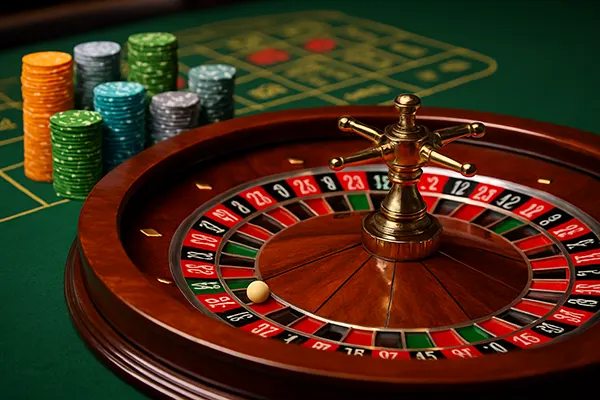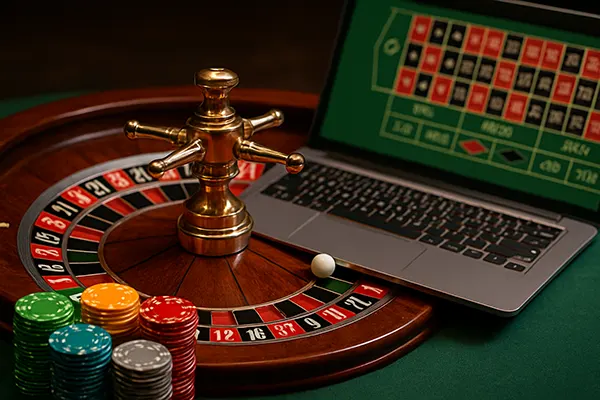
Comparison of Roulette Strategies: From Classic Systems to Modern Mathematical Models
Roulette has fascinated players for centuries, evolving from a game of pure chance into one that invites analysis and experimentation with strategy. While the spinning wheel remains unpredictable, players have consistently developed methods to manage their bets, aiming to either minimise losses or optimise potential gains. From time-tested systems to contemporary mathematical models, understanding these approaches helps illustrate the complex relationship between probability, psychology, and discipline in gambling.
Traditional Roulette Strategies
Classic strategies have been part of roulette since the game became widespread in European casinos. These systems are rooted in patterns of betting progression, attempting to recover losses or secure gradual profits. While they cannot alter the house edge, they reflect the enduring human attempt to impose structure on chance.
One of the most recognised systems is the Martingale. Here, players double their bet after each loss, aiming to recover all previous stakes plus a small profit once a win occurs. Despite its simplicity, the Martingale carries the risk of substantial losses during long losing streaks, making it more dangerous than it might initially appear.
Other traditional systems include the D’Alembert and Fibonacci progressions. Both involve incremental adjustments rather than doubling, which reduces the risk of rapid bankroll depletion. However, these approaches still rely on the assumption that wins will eventually balance losses, a principle that can prove unreliable in practice.
The Role of Bankroll and Discipline in Classic Systems
Regardless of the system applied, bankroll management remains central. Traditional strategies demand a steady approach, as aggressive chasing of losses can exhaust funds quickly. The Martingale, for instance, assumes infinite capital, which is unrealistic for most players.
Discipline is equally important. Many players abandon their system under emotional pressure, turning theoretical models into uncontrolled gambling. By setting strict limits, strategies such as Fibonacci can be sustained longer, but they still cannot overcome the mathematical advantage held by the house.
Classic methods endure less because they guarantee success, and more because they add structure to gameplay. For players, this psychological framework can be as valuable as the strategies themselves, transforming a random game into one with perceived control.
Modern Mathematical Approaches
With the rise of computing and probability theory, roulette strategies have shifted towards more rigorous analysis. Rather than relying on simple progressions, these models aim to quantify risk, calculate optimal bet sizes, and evaluate long-term expectations.
One modern approach is the Kelly Criterion, which uses logarithmic utility to determine the proportion of bankroll to wager. Although originally developed for financial markets, it has been applied to roulette as a tool for avoiding overexposure and ensuring sustainable growth when applied to bets with positive expectation.
Another area of interest is statistical modelling of wheel imperfections. In some rare cases, physical bias has been detected in roulette wheels, allowing players to identify outcomes that deviate from randomness. While casinos today employ rigorous testing to prevent such weaknesses, historical examples demonstrate how mathematical observation has turned the game into a data-driven exercise.
Probability, Simulation, and Data Analysis
Modern players often use simulations to test betting systems before applying them in practice. By running thousands of iterations, it becomes possible to predict the volatility and expected results of different strategies. This approach replaces guesswork with measurable outcomes.
Probability also helps debunk common myths. For example, the “gambler’s fallacy” — the belief that past results influence future outcomes — can be tested and disproved through statistical reasoning. Understanding independence of spins is central to modern models.
Ultimately, mathematical strategies emphasise that roulette cannot be “beaten” in the long term under fair conditions. However, by applying data analysis and measured betting, players can minimise risk exposure and enhance the rational side of gameplay.

Psychological and Practical Considerations
Beyond mathematics, roulette strategies intersect with human psychology. Many players adopt systems not because they improve winning chances, but because they reduce anxiety by providing structure and purpose. This makes roulette as much a psychological exercise as a mathematical one.
Responsible gambling is another crucial aspect. Even the most sophisticated strategy cannot eliminate risk, and the unpredictability of the wheel means losses must always be anticipated. Approaching the game with entertainment in mind rather than expectation of profit ensures a healthier balance.
In recent years, online play has added convenience and introduced new tools such as automated trackers, which allow players to monitor outcomes and test strategies more efficiently. While these resources offer insights, they should be used to enhance understanding, not as guarantees of success.
The Future of Roulette Strategy
Looking ahead, advances in artificial intelligence and machine learning may influence roulette strategies further. Predictive models and data-driven algorithms can run complex simulations beyond human capability, offering deeper insights into betting patterns and outcomes.
Nevertheless, roulette will always remain a game dominated by chance. No matter how advanced the strategy, the fixed odds ensure the house retains its edge. Thus, strategies may evolve, but the fundamental unpredictability of the game will not change.
For players, the value of strategies may not lie in profitability, but in providing a framework for more structured, disciplined, and responsible play. This balance between entertainment and rationality continues to define the evolution of roulette strategies in 2025.
